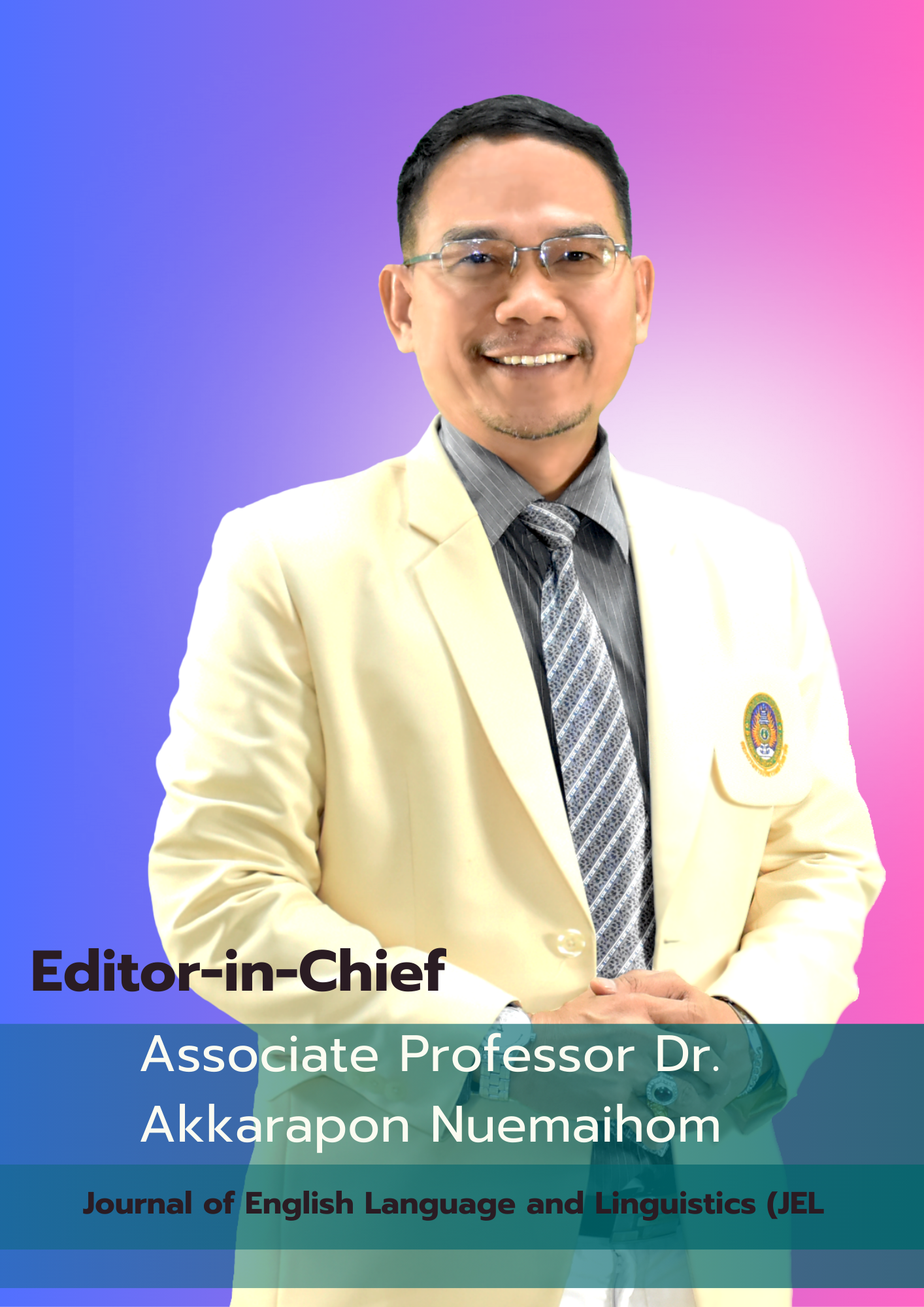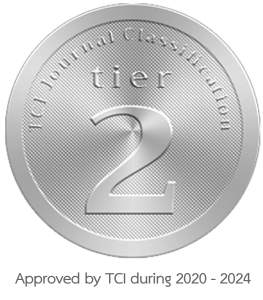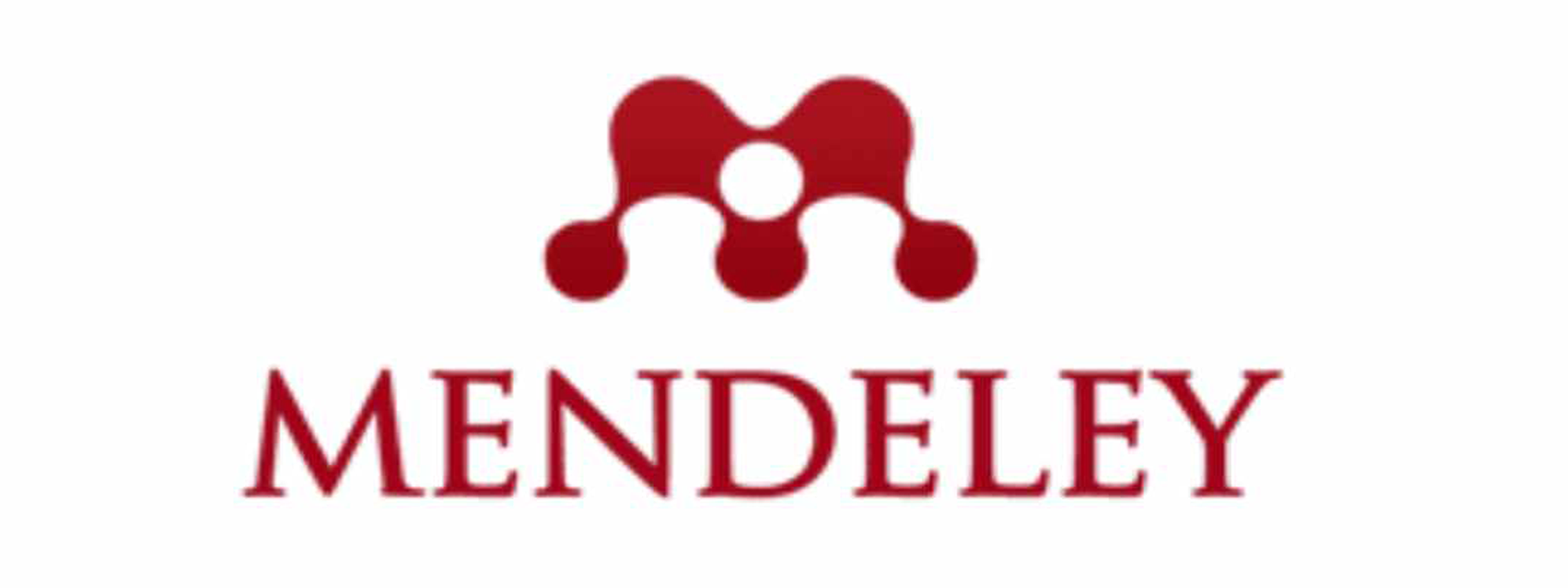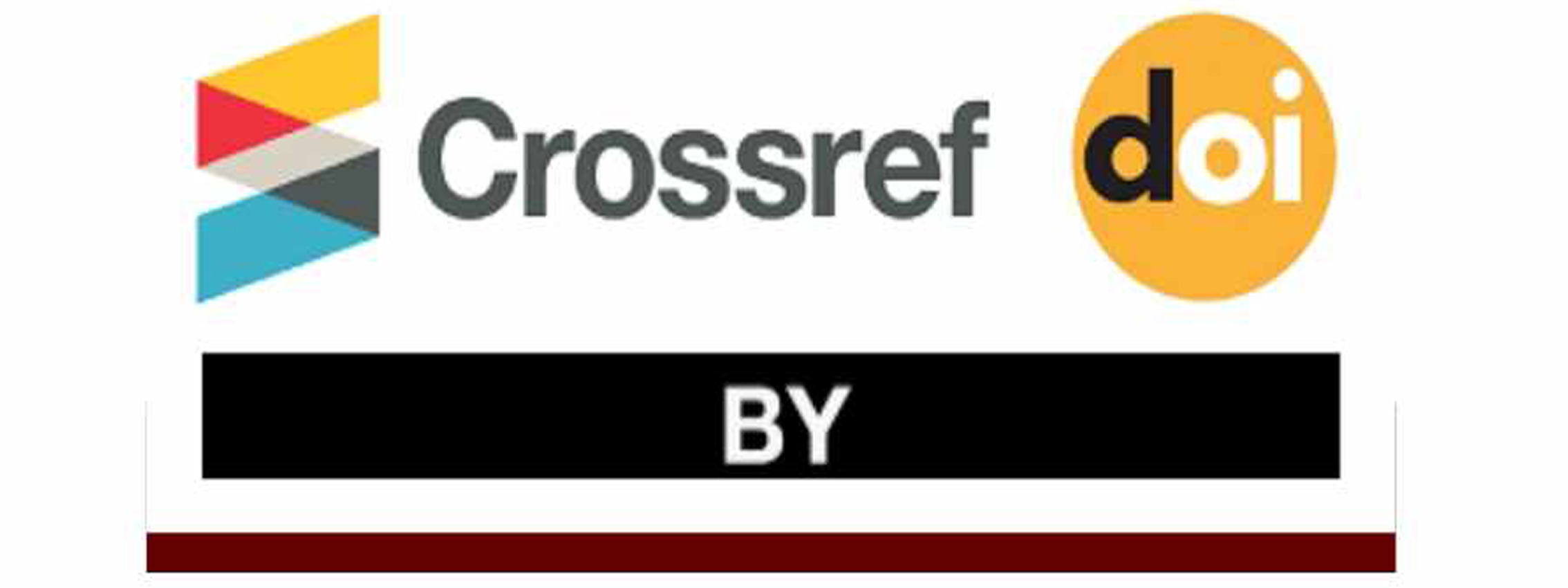The role of English in the linguistic landscape of the Bangkok Bus Terminal (Mo Chit): A linguistic landscape study
DOI:
https://doi.org/10.62819/jel.2025.1172Keywords:
English signage, linguistic landscape, multilingual communication, role of English, transport hubAbstract
Transport terminals are more than places for catching buses—they are spaces where languages meet real passengers. In Thailand, where people from different regions and countries pass through every day, signage plays an important role in helping everyone find their way. This study looks at how English is used on signs at Bangkok Bus Terminal (Mo Chit), a major hub for both Thai passengers and migrant workers. Using Ben-Rafael’s (2006) framework, the research analyzed 290 signs collected through fieldwork in May 2024. The results showed that while bilingual signs dominated (183 signs, 63.10%), the terminal also displayed monolingual signs (99 signs, 34.14%) and a small number of trilingual signs (1 sign, 0.34%). Most bilingual signage combines Thai and English, with government signs offering more balanced language presentation than those made by private companies. While English helps with basic communication, it often appears in smaller fonts and with inconsistent quality—especially in bottom-up signage. Interestingly, Chinese was not found, and only a few signs used Burmese or Lao, despite the large number of regional travelers. These patterns suggest that while English is visible, it’s not always accessible. The study highlights how language on signs reflects broader issues of inclusion, mobility, and policy, especially in spaces meant to serve the public.
References
Ayyub, S., & Rohmah, Z. (2024). The linguistic landscape of Kotabaru Malang Train Station: Language representation in public space. Cogent Arts & Humanities, 11(1), 2389633. https://doi.org/10.1080/23311983.2024.2389633
Beeh, N., Nenotek, S., Snae, A., & Benu, N. (2022). Multilingualism in the linguistic landscape of transportation in Kupang. Lingua, 17(2), 187–198.
Ben-Rafael, E., Shohamy, E., Hasan Amara, M. H., & Trumper-Hecht, N. (2006). Linguistic landscape as symbolic construction of the public space: The case of Israel. International Journal of Multilingualism, 3(1), 7–30. https://doi.org/10.1080/14790710608668383
Chanthao, R., & Kobbun, P. (2024). Multilingual signs in Khon Kaen city: Transportation. IRJEMS International Research Journal of Economics and Management Studies, 3(1), 19–27.
De Los Reyes, R. A. (2014). Language of “order”: English in the linguistic landscape of two major train stations in the Philippines. Asian Journal of English Language Studies, 2, 20–42. https://doi.org/10.59960/2.a2
Kramsch, C. (2014). Teaching foreign languages in an era of globalization. The Modern Language Journal, 98(1), 295–310.
Kramsch, C. (2021). Language as symbolic power. Cambridge University Press.
Landry, R., & Bourhis, R. Y. (1997). Linguistic landscape and ethnolinguistic vitality: An empirical study. Journal of Language and Social Psychology, 16(1), 23–49. https://doi.org/10.1177/0261927X970161002
Ministry of Industry. (2017). Thailand 4.0 The next revolution. Ministry of Industry.
Ministry of Tourism, & Sports. (2024, March 31). Tourism statistics 2023. https://www.mots.go.th/news/category/704
Ngampramuan, W. (2010). Linguistic landscape: A case study of signs in major transport hubs in Thailand [Unpublished Master’s thesis]. Open University.
Ngampramuan, W. (2022). Linguistic landscape in Thailand: A case study of languages used on signs at Suvarnabhumi International Airport. The Liberal Arts Journal Faculty of Liberal Arts. Mahidol University, 5(2), 314–331.
Nguyen, T. H., & Miller, J. (2018). English in Public Signage in Vietnam: Symbolic meanings and implications. Asian Englishes, 20(1), 41–55.
Piller, I. (2001). Identity constructions in multilingual advertising. Language in Society, 30(2), 153–186. https://doi.org/10.1017/S0047404501002019
Pipattarasakul, P. (2021). Linguistic landscape of the legendary century-old Bangkok railway station. Rangsit Journal of Social Sciences and Humanities, 8(2), 53–66.
Putra, V. G. R., Novela, F., & Busri, H. (2024). Linguistic landscape study: Signs of public transportation places in Sidoarjo Regency. Diglosia, 7(1), 163–174. https://doi.org/10.30872/diglosia.v7i1.866
Sutthinaraphan, K. (2016). A linguistic landscape study of advertising signage on skytrain. MANUSYA. The Journal of Humanities, 22(Special Issue), 53–71.
Williams, C. H. (2006). Linguistic minorities in democratic context. Palgrave Macmillan.
Woo, N. R. (2020). Linguistic landscape in Kuala Lumpur International Airport, Malaysia. Journal of Multilingual and Multicultural Development, 43(2), 1–20.
Zaman, M., & Sinaga, M. (2024). Revitalization and rejuvenation of multilingualism in railway transportation services through linguistic landscape analysis. LWSA Conference Series, 7, 88–97.


















